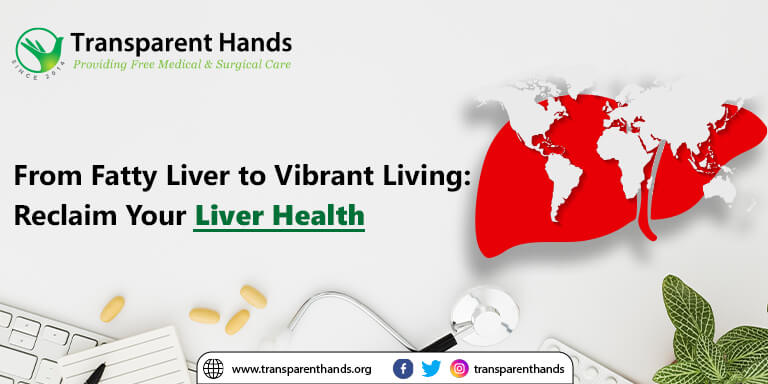From Fatty Liver to Vibrant Living: Reclaim Your Liver Health

The liver, one of the most vital organs in our body, plays a crucial role in digestion, metabolism, and detoxification. However, the prevalence of fatty liver disease has been on the rise in recent years, posing a significant health concern worldwide. In this comprehensive article, we will delve into the various aspects of fatty liver, including fatty liver symptoms, treatment options, dietary recommendations, natural remedies, prevention tips, lifestyle changes, and exercise recommendations.
Fatty Liver Symptoms
Fatty liver disease is often asymptomatic in its early stages, but as the condition progresses, various symptoms may manifest. Some common symptoms of fatty liver include:
- Fatigue and Weakness: Experiencing persistent tiredness and lack of energy.
- Abdominal Discomfort: Feeling pain or discomfort in the upper right side of the abdomen.
- Enlarged Liver: Having a swollen or enlarged liver, which can be detected during a physical examination.
- Unexplained Weight Loss: Experiencing significant and unintentional weight loss.
- Jaundice: Developing yellowing of the skin and eyes, indicating liver dysfunction in advanced stages.
- Confusion and Impaired Cognitive Function: Experiencing difficulties in concentration, memory, and overall cognitive function, particularly in severe cases.
What is Non-alcoholic Fatty Liver Disease?
Non-alcoholic fatty liver disease (NAFLD) is a condition characterized by the accumulation of fat in the liver of people who consume little to no alcohol. It is the most common liver disorder worldwide and is closely associated with obesity, insulin resistance, and other metabolic risk factors. NAFLD can range from simple fatty liver (steatosis) to more severe forms, such as non-alcoholic steatohepatitis (NASH), which involves inflammation and liver cell damage. If left untreated, NASH can progress to fibrosis, cirrhosis, and even liver failure.
Early detection and lifestyle changes, including a healthy diet, regular exercise, and weight management, play a crucial role in managing NAFLD and preventing its progression to more severe stages. Consulting a healthcare professional for proper diagnosis and management is vital for individuals suspected of having NAFLD.
Fatty Liver Treatment
The treatment of fatty liver typically involves lifestyle changes, including adopting a healthy diet, engaging in regular exercise, and achieving and maintaining a healthy weight. It is important to limit or avoid alcohol consumption for those with alcoholic fatty liver disease. Medications may be prescribed to manage underlying fatty liver symptoms and conditions such as diabetes or high cholesterol. Regular monitoring and follow-up with healthcare professionals are essential for assessing progress and adjusting treatment as needed. Consultation with a healthcare provider is crucial for personalized guidance and effective management of fatty liver disease.
Diet for a Fatty Liver
A fatty liver diet aims to promote liver health and reduce fat accumulation in the liver. It involves limiting added sugars and refined carbs, increasing fiber intake, choosing lean proteins, incorporating healthy fats, avoiding excessive alcohol, staying hydrated, managing portion sizes, and engaging in regular exercise. Consulting a healthcare professional or a registered dietitian is essential for personalized dietary recommendations based on individual needs and conditions.
Causes of Fatty Liver
Fatty liver, or hepatic steatosis, can be caused by various factors. The primary causes of fatty liver include:
Obesity
Excess body weight, especially abdominal obesity, is among the major fatty liver causes. It is closely associated with insulin resistance and the accumulation of fat in the liver.
Insulin resistance
When the body’s cells become less responsive to insulin, the pancreas produces more insulin to maintain normal blood sugar levels. This increased insulin level can lead to the accumulation of fat in the liver.
Type 2 diabetes
Individuals with type 2 diabetes are more susceptible to developing fatty liver due to insulin resistance and abnormal fat metabolism.
Tips to Avoid Diabetes Complications
Metabolic Syndrome
Metabolic syndrome is a cluster of conditions, including obesity, high blood pressure, high blood sugar, and abnormal cholesterol levels, which significantly increase the risk of fatty liver.
Alcohol consumption
While non-alcoholic fatty liver disease is unrelated to alcohol consumption, excessive alcohol intake can also lead to alcoholic fatty liver disease.
Natural Remedies for Fatty Liver
Natural remedies can complement medical treatments for fatty liver and help promote liver health. Some effective natural remedies include:
Diet Modifications
Adopting a healthy diet is crucial for managing fatty liver. Include foods rich in antioxidants, such as fruits, vegetables, and whole grains. Reduce or avoid saturated fats, trans fats, and added sugars. Consume foods high in omega-3 fatty acids, like fatty fish, flaxseeds, and chia seeds.
Exercise Regularly
Engaging in regular physical activity can help improve insulin sensitivity and reduce fat accumulation in the liver. Aim for at least 150 minutes of moderate-intensity exercise per week.
Benefits of Exercise for Better Health
Weight Management
If overweight or obese, losing weight gradually can reduce fat buildup in the liver and improve liver function. However, crash diets should be avoided, as rapid weight loss can worsen fatty liver.
Best Superfoods for Weight Loss
Reduce Alcohol Intake
For those with alcoholic fatty liver disease or a history of alcohol abuse, eliminating or significantly reducing alcohol intake is essential for liver health.
Intermittent Fasting
Some evidence suggests that intermittent fasting can help reduce liver fat and improve insulin sensitivity. This remedy is more beneficial than medication for fatty liver treatment as precautionary measures and prevention of a disease are always better than treating it.
Avoid Toxins
Limit exposure to environmental toxins and chemicals that may burden the liver. Use natural cleaning products and choose organic produce when possible.
Conclusion
Fatty liver disease is a significant health concern that affects millions of people worldwide. By understanding fatty liver symptoms, treatment options, dietary recommendations, natural remedies, prevention tips, lifestyle changes, and exercise recommendations, individuals can take proactive steps to reclaim their liver health and embrace vibrant living. Remember, early detection, proper management, and a healthy lifestyle are key to preventing complications and preserving liver function. Consult with a healthcare professional for personalized advice and embark on a journey towards optimal liver health.










Leave Your Comments